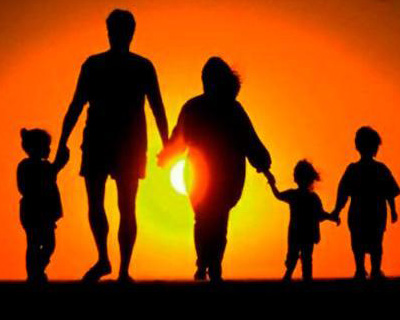No Armenian genocide? Then where is my family?

When I was a child, stories of what happened to the Armenian people at the hands of Turkey were a part of my family’s soundtrack.
My adopted mother’s parents survived what much of the world now calls the Armenian genocide. They immigrated to America as children, and enjoyed the “victory-over-evil” of living well and comfortably through old age.
The loud genocide denials of today’s Turkish leaders always leave me shaking my head and asking a simple question: If there was no genocide, then where is the rest of my family?
Most of us can trace genealogical records — things like birth certificates, census forms and immigration records — to learn about those who came before us. Web services such as Ancestry.com offer us easy ways to search through our family history. So does a visit to a Family History Center operated by the Church of Jesus Christ of Latter-day Saints.
For an entire generation of Armenians, however, those searches usually yield absolutely nothing.
My maternal grandparents were given the names Cap and Rose Bagdasarian after they were separately rescued by the Red Cross in the mid-1890s, at the very beginning of what would become the genocide.
My grandmother was told that she was found, as an infant, beneath the body of a woman, presumably her mother, in a village in eastern Anatolia — modern-day Turkey — after a massacre by Hamidie cavalry under the direction of then-Sultan Abdul Hamid II, the head of the Ottoman Empire.
My grandfather was told that he had been found wandering a street at about the age of 4. He said throughout his life that he had no memory of what happened to him before he was rescued. Today, we understand that’s a pretty common side effect of post-traumatic stress syndrome.
They were the lucky ones. Historical records say that 300,000 Armenians died in what historians call the Hamidic Massacres of the 1890s.
My grandparents were able to escape, first to Britain and then America, before the worst of the Armenian genocide began 100 years ago this week, on April 24, 1915.
When it was over, in 1922, 1.5 million of the two million Armenians living in Turkey were dead.
For me, my grandparents are literally the “People Zero” in my family line. No names are listed before them in the family tree. None are listed alongside.
Where is the rest of my family?
I spent 44 years as a journalist, and the principle of fairness flows through my veins. I believe that there are always many sides of a story, and each deserves to be heard. However, there is the sometimes inconvenient little matter of truth.
Whatever Ankara would like the world to believe, the Armenian genocide happened.
Just as in the Jewish genocide at the hands of the Nazis 20 years later, the Armenians were targeted because they were more prosperous than their fellow Turks. One reason may have been that the Armenian culture places a very high value on education. Just as now, a better education usually resulted in a better life.
The Armenian diaspora — much of which is in America — has generally prospered, preferring to gain revenge — like my own grandparents — through living well rather than the extraction of pounds of flesh.
Some, like the family of my oldest childhood friend, talked little about the genocide, trying to put that evil legacy behind them. For others, like my Grandma Rose, the genocide was always right there, just beneath the surface.
That’s the price we pay, I suppose, when human beings cease being human.
If we deny that evil has been among us, how on earth do we prevent it happening again?
The Armenians. The Jews. The Hutus of Rwanda. The Christians of Syria.
Clearly, denial isn’t working.
How many more have to ask, “Where is my family?”
Steve Krueger of Auburn is a retired KPLU Public Radio journalist. He’s the author of “Manifest Destiny: Fire on the Water,” published in 2012, and is releasing an historical novel about the Armenian genocide, “In the Shadow of the Mountain,” later this spring.
BY STEVE KRUEGER
Contributing writer
thenewstribune.com




 Արևելահայերեն
Արևելահայերեն Արևմտահայերեն
Արևմտահայերեն Русский
Русский






